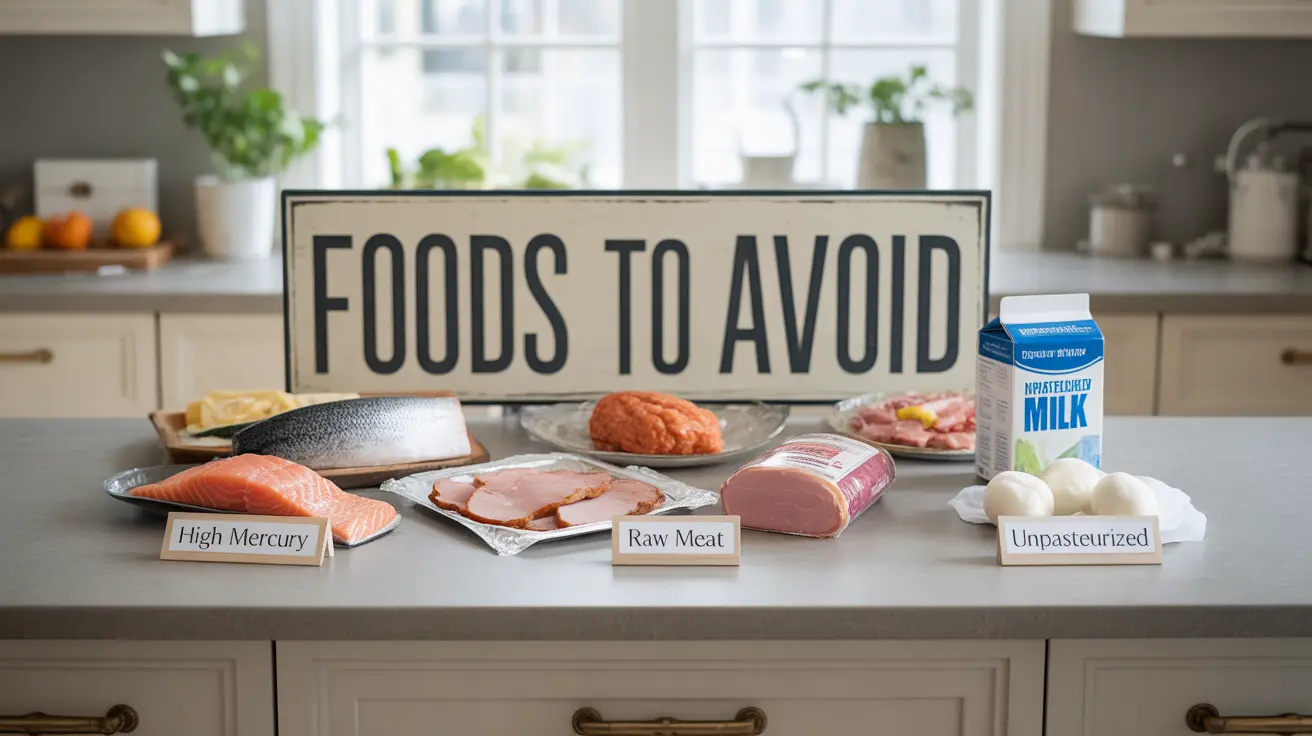Pregnancy is a crucial time when every dietary choice can impact both maternal and fetal health. Understanding what to avoid during pregnancy is essential for reducing miscarriage risks and ensuring a healthy pregnancy journey. This comprehensive guide explores the key substances and foods that expectant mothers should avoid to protect their developing baby.
While pregnancy can be an exciting time, it's important to be informed about potential risks and make educated choices about your diet and lifestyle. Let's examine the most critical things to avoid during pregnancy that could increase miscarriage risk.
Caffeine Consumption During Pregnancy
Managing caffeine intake is crucial during pregnancy, particularly in the early stages. While you don't need to eliminate caffeine completely, moderation is key to protecting your developing baby.
The current medical consensus recommends limiting caffeine consumption to no more than 200mg per day during pregnancy. This equals approximately:
- One 12-ounce cup of coffee
- Two cups of tea
- 12 ounces of caffeinated soda
Excessive caffeine intake can affect fetal development and potentially increase the risk of pregnancy complications. It's important to remember that caffeine is present in various foods and beverages, including chocolate and energy drinks.
High-Mercury Fish and Seafood Concerns
Some fish contain high levels of mercury, which can be harmful during pregnancy. Avoiding certain types of fish is essential for protecting your developing baby.
Fish to Avoid During Pregnancy
- Shark
- Swordfish
- King mackerel
- Tilefish
- Marlin
- Bigeye tuna
Instead, focus on low-mercury fish options rich in omega-3 fatty acids, such as salmon, trout, and sardines. These provide essential nutrients while maintaining pregnancy safety.
Raw and Undercooked Food Risks
Consuming raw or undercooked foods during pregnancy can expose you to harmful bacteria and parasites that may increase miscarriage risk.
Foods Requiring Special Attention
- Raw or undercooked eggs
- Raw or rare meat
- Uncooked seafood and shellfish
- Unwashed fruits and vegetables
- Raw sprouts
Always ensure meats are cooked to proper temperatures and eggs are thoroughly cooked until both whites and yolks are firm.
Unpasteurized Dairy Products
Unpasteurized dairy products can harbor dangerous bacteria like Listeria, which poses significant risks during pregnancy.
Products to Avoid
- Raw milk
- Soft cheeses made with unpasteurized milk
- Homemade cheese products
- Unpasteurized yogurt
Choose pasteurized alternatives to ensure safety while still obtaining necessary calcium and nutrients during pregnancy.
Frequently Asked Questions
- What foods should I avoid during pregnancy to reduce the risk of miscarriage?
You should avoid unpasteurized dairy products, raw or undercooked meat and eggs, high-mercury fish, and unwashed produce. Additionally, limit processed foods and those high in added sugars or artificial additives.
- How much caffeine is safe to consume in early pregnancy to prevent miscarriage?
The recommended safe limit is 200mg of caffeine per day during pregnancy. This equals roughly one 12-ounce cup of coffee or two cups of tea. It's important to consider all sources of caffeine in your diet.
- Why is eating raw or undercooked meat and eggs dangerous during pregnancy?
Raw or undercooked meat and eggs can contain harmful bacteria like Salmonella and parasites that can cause serious infections, potentially leading to pregnancy complications or miscarriage. These foods should always be thoroughly cooked.
- Can consuming high-mercury fish increase the chance of miscarriage?
Yes, consuming fish high in mercury can increase the risk of miscarriage and affect fetal development. Avoid shark, swordfish, king mackerel, and other high-mercury fish during pregnancy.
- Are unpasteurized dairy products harmful for pregnant women and their babies?
Yes, unpasteurized dairy products can contain harmful bacteria like Listeria, which can cause severe complications during pregnancy, including miscarriage. Always choose pasteurized dairy products during pregnancy.
Remember to consult with your healthcare provider about specific dietary restrictions based on your individual pregnancy circumstances and medical history.




